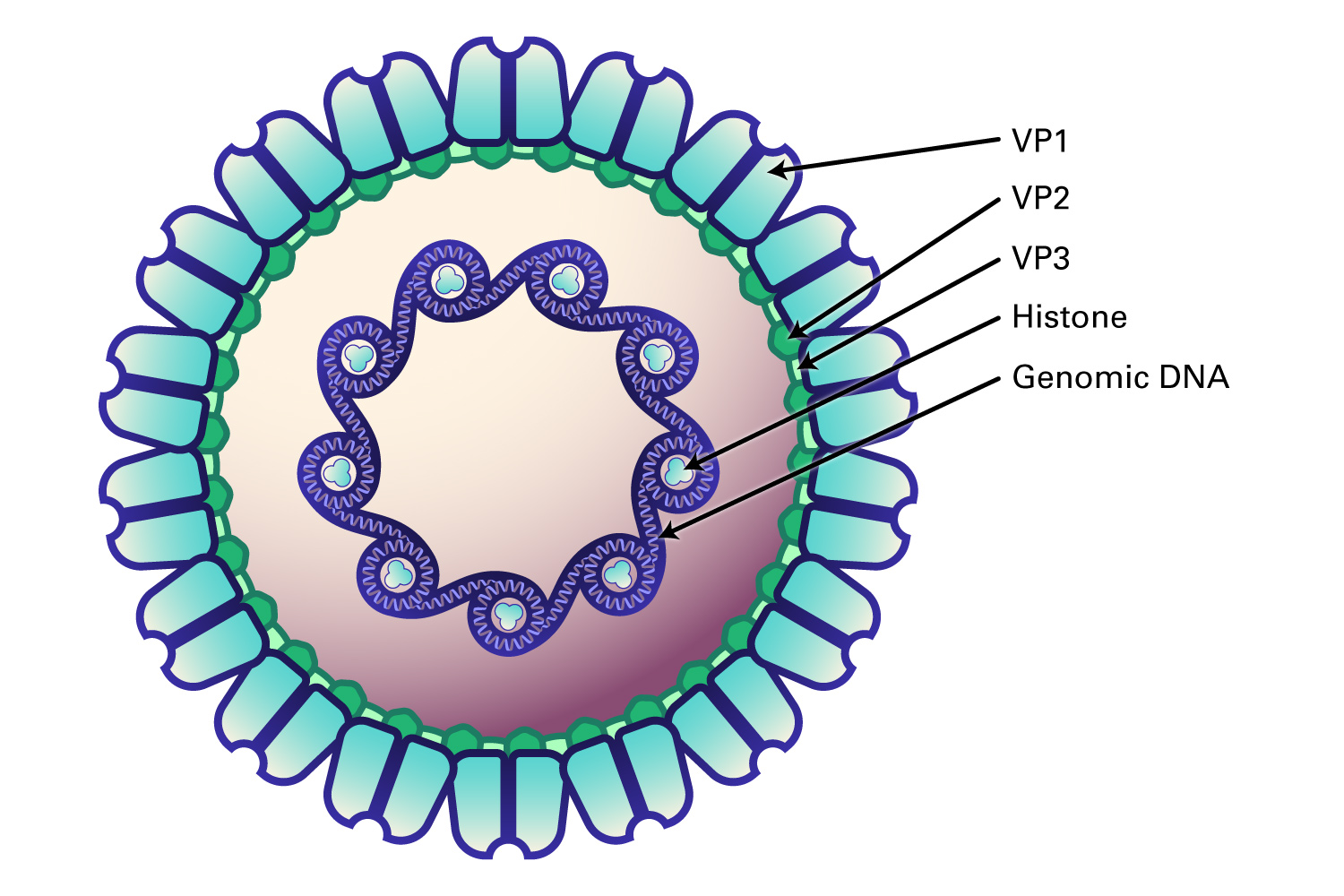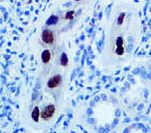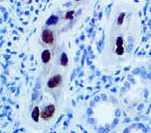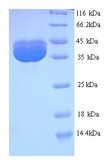order histories, retained contact details for faster checkout, review submissions, and special promotions.
Forgot password?
order histories, retained contact details for faster checkout, review submissions, and special promotions.
Location
Corporate Headquarters
Vector Laboratories, Inc.
6737 Mowry Ave
Newark, CA 94560
United States
Telephone Numbers
Customer Service: (800) 227-6666 / (650) 697-3600
Contact Us
Additional Contact Details
order histories, retained contact details for faster checkout, review submissions, and special promotions.
Forgot password?
order histories, retained contact details for faster checkout, review submissions, and special promotions.
Polyomaviridae (SV40)
Polyomaviruses are non-enveloped, icosahedral double-stranded DNA viruses that range from 45 to 55 nm in diameter, and contain a limited number of genes (6-7).

About Polyomaviridae
Polyomaviruses include members such as SV40, JC, and BK viruses, and encode both early functions (nonstructural proteins) that can induce tumors in animals, and late functions that code for structural proteins such as the viral capsid. Most polyomaviruses produce harmless, persistent infections in their hosts, except for the JC virus, which has been implicated in progressive multifocal leukoencephalopathy, a demyelinating disease that occurs rarely in individuals with impaired immune systems. The BK virus can cause a mild respiratory infection in children, then persists in the kidney. In adults with impaired immunity or who have had renal transplants, the virus can produce nephropathy, ureteric stenosis, or cystitis.


Polyomaviruses can either infect cells, replicate, and induce cell death upon lysis (permissive cells) or infect cells and transform them rather than undergoing viral replication (non-permissive cells). In permissive cells, the virion attaches to specific surface receptors, enters the cell and is transported to the nucleus, where viral DNA is released. Early phase proteins such as large T antigen drive the cell into S phase, then use cellular DNA synthesis proteins such as DNA polymerase and thymidine kinase to replicate. T antigen binding then initiates transcription of late viral RNAs for proteins such as VP1, VP2, and VP3, and progeny virions are assembled in the nucleus. Host cell lysis then releases the viral particles.
In non-permissive cells or permissive cells infected with defective viral genomes, the tumor antigens are synthesized, and cellular DNA synthesis is stimulated, but late viral capsid genes are not expressed. Instead, the viral genome integrates randomly into the host chromosome. In SV40, the large T antigen binds p53 and RB proteins to trigger immortalization. In other polyomaviruses, the middle T antigen binds cellular proteins such as c-src, and promotes cellular replication.
References
- Ambalathingal, GR et al. BK Polyomavirus: Clinical Aspects, Immune Regulation, and Emerging Therapies. 2017; Clin Microbiol Reviews. doi: 10.1128/CMR.00074-16
- Butel, JS. Papovaviruses. Medical Microbiology. 1996; 4th Edition, Chapter 66.
All Polyomaviridae (SV40) Products















